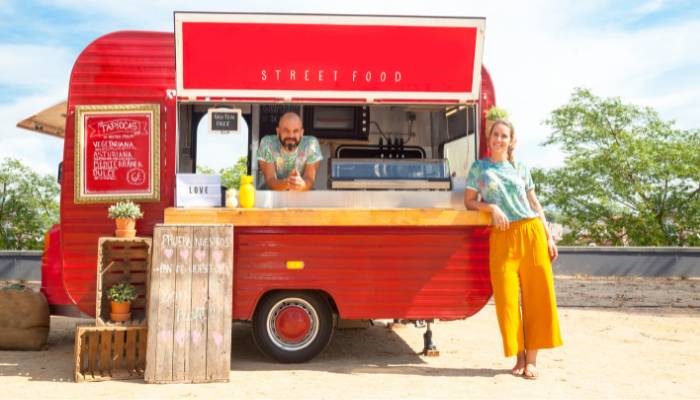

As a food truck owner, you have much to consider when it comes to keeping your business running and your customers safe. One of the ways you can secure your business is by getting the right insurance for your food truck. Here are the types of restaurant insurance you need for your food truck:
General Liability Insurance
General liability insurance may cover any injuries or property damage accidentally caused to third parties. This insurance can cover incidences like slip-and-fall accidents and legal fees resulting from lawsuits. This includes product-related lawsuits such as food poisoning claims and advertising lawsuits. General liability insurance may not cover auto accidents or incidents that happen while you are on the road.
Commercial Auto Insurance
Since your food truck is a vehicle, you may need auto insurance for vehicle-related damages. Commercial auto insurance policies can cover your vehicle for physical damage to its components. It also covers any permanently attached equipment, including gas lines and plumbing. Some types of coverages under commercial auto insurance include:
Comprehensive Coverage: Comprehensive coverage covers all damages from accidents where you are not at fault. They include fires, natural disasters, theft, and vandalism.
Collision Coverage: This type of insurance can protect you from damages from crashing your food truck into another vehicle or property.
Personal Injury Protection: Personal injury protection can cover you and your passengers’ medical expenses in case of an accident, regardless of who is at fault.
Liability Coverage: This insurance can cover damages to property or injuries to others that occur while your food truck is in transit.
Business Property Insurance
Business property insurance can cover every other item in your food truck that is not permanently attached to it. Some instances covered by business property insurance include the following:
- Weather damages
- Theft
- Vandalism
- Damage to business property not stored in the truck
- Damages caused to items in a car accident
Business property insurance may not cover items fixed to your truck, so you should pair it with commercial auto insurance to protect everything in your vehicle.
Business Interruption Insurance
Incidents such as fire, adverse weather conditions, and property damage from accidents may keep you from running your food truck business. If you have a business interruption policy that covers these incidents, you may get compensation for the loss of income during your temporary shutdown. Business interruption insurance also covers the costs of moving to a temporary relocation as you fix your truck.
Equipment Breakdown Insurance
To successfully run a food truck, you need cooking equipment such as grills, fryers, or ovens to prepare food for your customers. You also need food storage equipment like fridges and freezers. Equipment breakdowns cost a lot of money to repair, so it can help to have insurance that covers those expenses. Equipment breakdown insurance covers the costs of replacing or repairing your equipment. It may not cover equipment replacement costs due to wear and tear.
Workers’ Compensation Insurance
If you have employees, provide them with workers’ compensation insurance. This restaurant insurance policy may cover medical bills, lost wages, and disability benefits if your employees get injured or suffer a work-related illness. Worker’s compensation insurance can also provide death benefits to an employee’s relatives or beneficiaries if your employee dies from complications due to a work-related injury
Worker’s compensation insurance is required by the Occupational Safety and Health Administration (OSHA), even if you have only one employee.
Liquor Liability Insurance
Liquor liability insurance can help if your food truck serves alcoholic drinks. This insurance policy can cover bodily injuries and property damage caused to others by a drunk customer. It can also cover medical bills, repairs, legal settlements, and legal fees in case of a lawsuit. Liquor liability insurance is legally required when you apply for a liquor license.
Food Spoilage Insurance
If your fridge or freezer breaks down, some perishable products may get spoilt, forcing you to restock your supplies. Food spoilage insurance can cover the cost of replacing spoiled food due to equipment breakdown or prolonged power outages. It can also protect your food truck after a food poisoning outbreak due to food contamination.
Food Truck Insurance Requirements
As with any business, owning and operating a food truck comes with its own set of risks and challenges. In order to protect yourself and your business from potential liabilities, it is important to have adequate insurance coverage in place. Here are some of the most common insurance requirements for food trucks:
- Commercial auto insurance: Food trucks are classified as commercial vehicles and, as such, are required to have commercial auto insurance. This type of insurance provides coverage for damages, collisions, and accidents that may occur while operating your food truck on the road. It is important to note that personal auto insurance policies do not typically cover commercial vehicles, so you will need a separate policy specifically designed for your food truck.
- General liability insurance: This type of insurance provides coverage for accidents and injuries that may occur within or near your food truck, such as slips, falls, and foodborne illnesses. General liability insurance can also protect you from claims of property damage or advertising injuries. Many cities and municipalities require food truck businesses to have a minimum amount of general liability insurance coverage in order to obtain a permit to operate.
- Workers’ compensation insurance: If you have employees working in your food truck, you may be required by law to have workers’ compensation insurance. This type of insurance provides coverage for medical expenses, lost wages, and other expenses that may arise if an employee is injured on the job.
- Property insurance: While not typically required by law, property insurance can provide valuable protection for your food truck equipment, inventory, and other assets. This type of insurance can provide coverage for damages or losses due to theft, fire, or other unexpected events.
It is always a good idea to consult with an experienced insurance agent to determine what types and amounts of insurance coverage you need to protect your food truck business.
Protect Your Business With Restaurant Insurance
When running a food truck, you may encounter risks that can be costly to your business. Constantly paying for unexpected events out of pocket may affect your business’s profitability. Restaurant insurance can protect you from unforeseen expenses, helping you continue running your business despite uncertainty.

Welcome to MithilaConnect, where we curate the art of living, celebrating the vibrant tapestry of life through culture, fashion, food, and everything in between.
